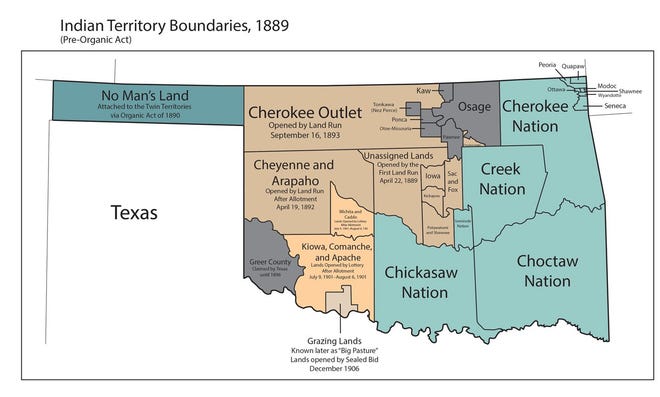
Officials with the U.S. Department of Interior told Oklahoma leaders earlier this month to turn over their records and to halt oversight activities related to surface coal mining and reclamation activities inside the Muscogee (Creek) Nation reservation.
The Interior Department's Office of Surface Mining Reclamation and Enforcement (OSMRE) believes the U.S. Supreme Court's decision in McGirt vs. Oklahoma stripped the state of its oversight authority.
Attorney General Mike Hunter is advising state leaders to ignore the direction.
On Friday, Hunter announced he had sent a letter to the U.S. Department of Interior to inform officials he believes the department is misinterpreting federal law and overstepping its authority.
More:Bosse to stay in Oklahoma custody while McGirt ruling is appealed to Supreme Court
“Courts ruled a long time ago that reservation lands are not categorically exempt from state jurisdiction for all purposes," Hunter wrote. "The McGirt ruling was about criminal jurisdiction, not all state regulations of industries ... there is no legal basis for us to stop this practice now.”

Ongoing fallout from McGirt ruling
In the McGirt case, a divided court ruled that Congress never formally disestablished the reservation, throwing out a conviction against an American Indian who had been convicted in a state district court of committing a felonious crime on reservation lands.
Hunter also asserted that only Congress has the authority to change the regulatory authority on reservation lands from a state to the federal government.
Even then, he argued that Congress faces limits in repealing a state’s civil jurisdiction over non-Native Americans on reservation lands.
Hunter also noted that oversight of coal mining and reclamation activities have been handled by state authorities for decades.
"I am advising that no state agency comply with this ill-advised power grab,” he argued.
OSMRE officials said they would assume oversight of the activities granted to the federal agency through the Surface Mining Control and Reclamation Act of 1977, which defines “Indian lands” as “all lands, including mineral interests, within the exterior boundaries of any Federal Indian reservation, notwithstanding the issuance of any patent, and including rights-of-way, and all lands including mineral interests held in trust for or supervised by an Indian tribe.”
Additionally, they said the law also designates OSMRE as the the regulatory authority over surface coal mining and reclamation operations on Indian lands where a tribe hasn't taken on those primary responsibilities.

"The court’s determination gives rise to the action OSMRE is taking," they stated at the time.
On Friday, Oklahoma Secretary of Energy and Environment Kenneth Wagner called Interior's decision to attempt to assume control over mining and reclamation activities within the reservation startling.
Wagner said the letter Hunter wrote accurately identifies the flaws in OSMRE's legal reasoning, adding that it leaves state officials with questions about what types of regulatory authority the federal agency may try to control next.
"What was alarming about this was that the Department of Interior took this action on its own volition, without any formal request from any tribal nation that we are aware of," Wagner said.


